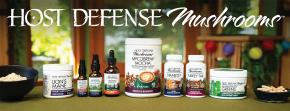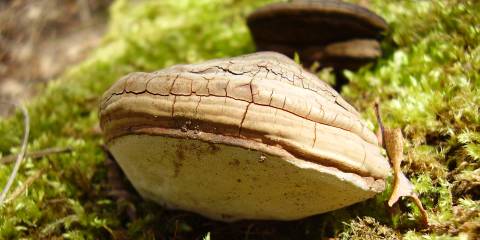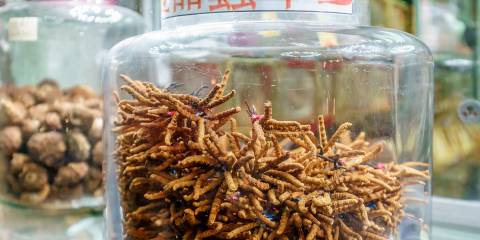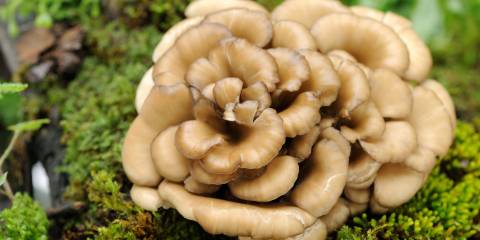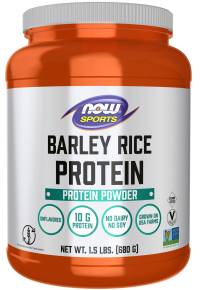As we learn more about human health and wellness, the interconnectedness of our body systems becomes increasingly apparent. One important area of research over the last 15 years has been the distinct and significant interconnectedness of the digestive tract and the brain—often referred to as the "gut-brain connection."[1] It has been discovered that nerve tissue, such as the vagus nerve, signals sensory and motor information directly between the intestinal tract and the brain. There are numerous immune influences known to occur in the digestive tract that impact the whole body, including the brain. And it has been found that the microflora of our oral and intestinal tract impacts our immune system and nutritional standing in numerous complex ways.§
Along with new discoveries about the gut-brain connection, more research has focused on how mushrooms can be a beneficial support for both the intestinal tract and the brain. It is well known that numerous mushroom species support the immune response in humans. While early research on mushrooms focused on the fruit body portion of the fungal life cycle, increasingly, research on mushroom mycelium has indicated that it also serves to support the immune response.§
When grown for use in human supplements, mushroom mycelium requires a growth medium, called a substrate. The mycelium consumes the substrate in a process of fermentation not unlike yogurt or tempeh. When separated out in a laboratory setting, research has shown that both the mycelium and the fermented substrate are robustly immunologically active.[2] Products containing both the mycelium and the fermented metabolites can be significant allies as we hope to encourage active yet balanced immune functioning in healthy individuals.[3]§
Further research on mycelium and fruit bodies of different species like lion’s mane, reishi, and turkey tail indicate a wide range of potential supportive activity for both our digestive health and nerve and brain health. Lion’s mane has been studied for its support of cognitive functioning, intestinal tissue integrity, and day-to-day nerve generative activity. It has also been shown to support prebiotic activity for probiotic microflora.[4|5]. The reishi mushroom has been found to support nervous system functioning and provides prebiotic fiber for our probiotic microflora.[6|7|8|9] Likewise, turkey tail has been researched for its support of sympathetic nervous system functioning and prebiotic activity.[1|2|10] And all three of these important beneficial mushroom species support immune modulatory activity.§
Support for the gut-brain connection doesn’t end with beneficial mushrooms. Probiotic intestinal microflora appear to correlate with optimal brain function and balanced mood. Beyond Lactobacillus and Bifidobacteria probiotics, Bacillus coagulans has been studied in humans and found to support balanced mood, intestinal tract function, and balanced immune functioning.[11|12] Bacillus coagulans is a shelf-stable probiotic that does not need refrigeration and has excellent survival through the digestive tract to colonize the large intestine.[13] All of these factors point to B. coagulans as yet another strong ally for intestinal, immune and brain health.§
Host Defense® MycoBotanicals® Microbiome§ combines reishi, lion’s mane, and turkey tail with Bacillus coagulans and two herbs: burdock root and marshmallow root. Combining these ingredients increases the convenience for daily use to support our digestion, brain, and natural immunity.§

